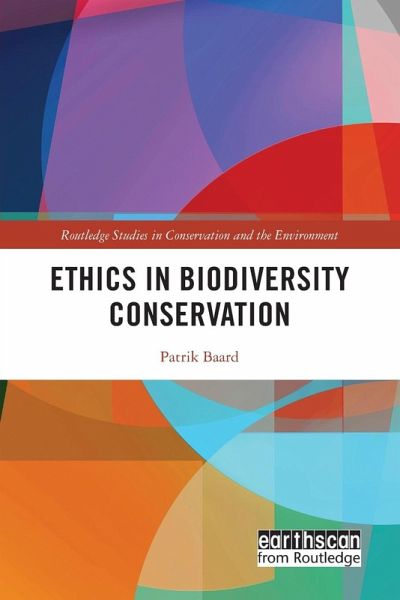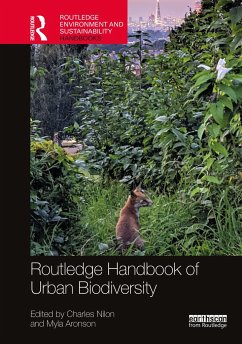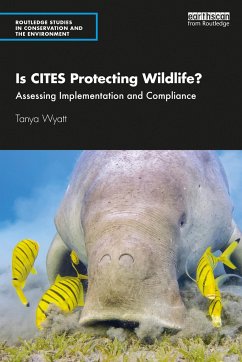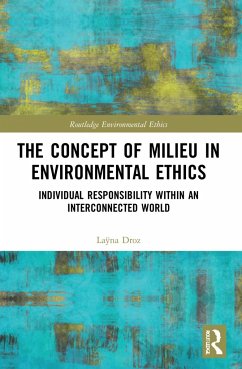
Ethics in Biodiversity Conservation
Versandkostenfrei!
Versandfertig in 6-10 Tagen
43,99 €
inkl. MwSt.
Weitere Ausgaben:

PAYBACK Punkte
22 °P sammeln!
This book examines the role of ethics and philosophy in biodiversity conservation.The objective of this book is two-fold: on the one hand it offers a detailed and systematic account of central normative concepts often used, but rarely explicated nor justified, within conservation biology. Such concepts include 'values' (both intrinsic, instrumental, and, more recently, relational), 'rights', and 'duties'. The second objective is to emphasize to environmental philosophers and applied ethicists the many interesting decision-making challenges of biodiversity conservation. The book argues that a n...
This book examines the role of ethics and philosophy in biodiversity conservation.
The objective of this book is two-fold: on the one hand it offers a detailed and systematic account of central normative concepts often used, but rarely explicated nor justified, within conservation biology. Such concepts include 'values' (both intrinsic, instrumental, and, more recently, relational), 'rights', and 'duties'. The second objective is to emphasize to environmental philosophers and applied ethicists the many interesting decision-making challenges of biodiversity conservation. The book argues that a nuanced account of instrumental values provides a powerful tool for reasoning about the values of biodiversity. It also scrutinizes relational values, the concept of rights of nature, and risk, and show how moral philosophy proves indispensable for these concepts. Consequently, it engages with recent suggestions on normative aspects of biodiversity conservation, and show the needfor moral philosophy in biodiversity conservation. The overriding aim of this book is to provide conservation biologists and policy-makers with a systematic overview of concepts and assessments of the reasons for reaching prescriptive conclusions about biodiversity conservation. This will prove instrumental in clarifying the role of applied ethics and a refined understanding of the tools it can provide.
This title will be of interest to students and scholars of conservation biology, conservation policy, environmental ethics and environmental philosophy.
The objective of this book is two-fold: on the one hand it offers a detailed and systematic account of central normative concepts often used, but rarely explicated nor justified, within conservation biology. Such concepts include 'values' (both intrinsic, instrumental, and, more recently, relational), 'rights', and 'duties'. The second objective is to emphasize to environmental philosophers and applied ethicists the many interesting decision-making challenges of biodiversity conservation. The book argues that a nuanced account of instrumental values provides a powerful tool for reasoning about the values of biodiversity. It also scrutinizes relational values, the concept of rights of nature, and risk, and show how moral philosophy proves indispensable for these concepts. Consequently, it engages with recent suggestions on normative aspects of biodiversity conservation, and show the needfor moral philosophy in biodiversity conservation. The overriding aim of this book is to provide conservation biologists and policy-makers with a systematic overview of concepts and assessments of the reasons for reaching prescriptive conclusions about biodiversity conservation. This will prove instrumental in clarifying the role of applied ethics and a refined understanding of the tools it can provide.
This title will be of interest to students and scholars of conservation biology, conservation policy, environmental ethics and environmental philosophy.














